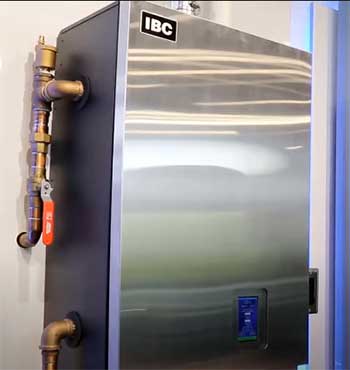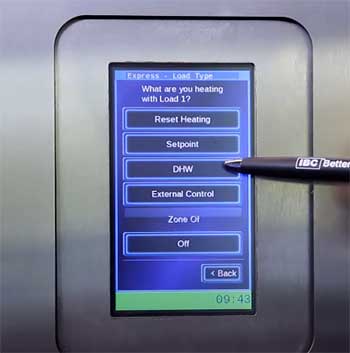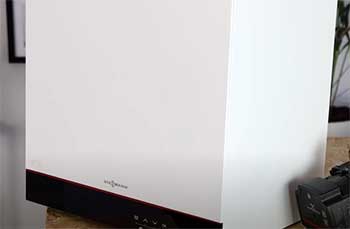Have you ever wondered about the heart that fuels the cozy warmth of your home in chilling winters? Yes, it’s the unassuming boiler sitting in the corner of your basement.
Today, we will focus on a key player in the boiler industry, IBC. Whether you’re planning to purchase a new boiler or replace an old one, an in-depth IBC boiler review will surely light the way.
IBC Boiler: A Quick Introduction
IBC is a highly reputable brand, known for delivering high-efficiency boilers. Standing tall in the arena of hydronic heating, IBC’s reputation is rooted in their dedication to design excellence, superior craftsmanship, and a robust customer support system.
IBC boilers are manufactured by ECR International, which is currently owned by Rheem Manufacturing. IBC has been making boilers for residential and commercial use for over 70 years.
They offer a line of high-efficiency gas-fired boilers in both condensing and non-condensing options. Available sizes range from 50,000 BTU units for smaller homes up to 5 million BTU boilers for large facilities.
IBC boilers are sold through wholesale distributors and installed by licensed professionals across the U.S. and Canada. They feature durable fire tube heat exchanger designs for long operational life. Read on for more details on IBC’s boiler offerings.
IBC Boiler Product Line Overview
IBC offers three main series of boilers:
1. Anvil Series: The Anvil series are non-condensing boilers with AFUE ratings of 82% to 85%. They have a compact footprint and come in heating inputs from 50,000 to 399,000 BTUs.

2. K2 Series: The mid-range K2 series are gas condensing boilers with up to 95% AFUE efficiency. Available in five models from 50,000 to 300,000 BTUs.
3. Pinnacle Series: IBC’s premium Pinnacle line are high-efficiency stainless steel condensing boilers rated up to 97% AFUE. Inputs range from 75,000 to 500,000 BTUs.
Key features across the IBC boiler lineup include:
- Fire tube heat exchanger design
- Forced draft direct venting
- Built-in diagnostics and controls
- ASME compliant models available
- Optional stainless steel heat exchangers
- Small footprint for flexible installation
But, how do IBC boilers stack up in the real world? Let’s dive into the pros and cons to find out.
Pros of IBC Boilers
- High Energy Efficiency
One of the noteworthy strengths of IBC boilers is their impressive energy efficiency.
The hallmark feature of IBC’s design philosophy is a commitment to reduce carbon footprint.
Consequently, most of their boilers are ENERGY STAR certified, offering efficiency ratings as high as 95%.
- Versatility and Range
IBC offers a comprehensive range of boilers, accommodating various customer requirements.
They have models suitable for any home, from compact residences to sprawling mansions, ensuring everyone can find their perfect match.
- User-Friendly
Boasting advanced controls, IBC boilers are user-friendly. The self-learning ECO mode adapts to patterns of use, optimizing energy consumption without compromising comfort.
- Outstanding Support
IBC excels in customer support, making sure that their clients are satisfied and their queries are addressed promptly.
- Flexible Installation
Compact size and venting options like direct vent allow for installation in tight spaces if needed.
- Budget-Friendly Pricing
IBC boilers are competitively priced, providing value compared to other big name brands.
- Good Warranties
IBC boilers come with 5-12 year warranty options covering the heat exchanger and key components. This offers solid protection.
Cons of IBC Boilers
- Initial Investment
While IBC boilers are renowned for their top-tier quality and performance, they might not be the first choice for budget-conscious customers. The initial purchase and installation cost can be higher than other brands.

- Maintenance Cost
If not regularly maintained, these boilers can lead to expensive repairs.
Regular service checks and upkeep are crucial.
- Limited Availability
Depending on your location, purchasing an IBC boiler could be a challenge due to limited availability in certain areas.
- Low “AFUE” Efficiency
While IBC reaches up to 97% AFUE, their non-condensing models lag at 82-85% AFUE. Newer boilers often exceed 90% efficiency.
- Dated Design
Some IBC boiler components use older technology lacking refinement of modern competitors.
- Spotty Technical Support
Dealers report hit-or-miss support quality from IBC tech teams. Better support offered by some brands.
- Complex Model Names
IBC’s naming conventions like K2-ASME-5 can be confusing for consumers to decipher.
While IBC makes dependable boilers, they may disappoint buyers looking for highest efficiency, modern features, and strong support. But for basic heating needs, IBC remains a viable option.
Real World Reviews
However, the final verdict is formed by users who operate these boilers in their everyday lives. Most homeowners appreciate IBC boilers for their reliable performance and longevity.
The user-friendly controls also receive a thumbs up. Yet, some users voice concerns over the higher upfront cost and maintenance requirements.
A Close Look at IBC’s Competitors
Although IBC holds a strong position in the boiler market, it isn’t the only brand vying for customers’ attention. Let’s shed some light on some of the other key players in this space and see how they stack up against IBC.

- Viessmann Boilers
Viessmann is a well-established German brand offering high-quality boilers.
The company stands out for its focus on advanced technology and innovative solutions.
How does it compare with IBC?
While both IBC and Viessmann aim for high efficiency, Viessmann’s boilers often come with a higher price tag. However, some users argue that the advanced features and superior build quality of Viessmann boilers justify the premium.
- Navien Boilers
Navien is another top contender known for its condensing technology, which maximizes energy efficiency. Navien boilers are designed to be eco-friendly and economical over their lifespan.
How does it compare with IBC?
Navien and IBC both deliver high-efficiency boilers, but Navien often has a lower initial cost, making it a popular choice among budget-conscious customers. However, some users have reported needing frequent repairs with Navien units, suggesting that IBC might offer better long-term reliability.
- Buderus Boilers
Owned by Bosch, Buderus is a brand with a long history and a solid reputation for durability. Buderus boilers are known for their strong build and longevity.
How does it compare with IBC?
Buderus boilers are built to last, but they may not match IBC boilers when it comes to energy efficiency. IBC’s commitment to high-efficiency units often puts them ahead in this aspect.
Buderus boilers are often praised for their durability, but they may not deliver the same level of energy savings as IBC.
- Weil-McLain
Weil-McLain boilers are considered the gold standard for durability and performance. But you pay a premium for their quality.
- Lennox
Lennox matches IBC’s efficiency and pricing, but offers smarter controls and superior parts warranties.
- Lochinvar
Near commercial-grade quality from Lochinvar but higher initial pricing. Product diversity lags IBC’s range.
All these brands bring something unique to the table, and the best choice depends on your specific needs and preferences. While IBC boasts high efficiency and user-friendly controls, Viessmann offers advanced features, Navien aims for cost-effectiveness, and Buderus prioritizes durability.
While shopping for a boiler, remember to consider all factors, including the initial cost, energy efficiency, maintenance requirements, and the brand’s reputation for quality and service. It’s about striking the right balance between performance, price, and long-term value.
IBC Boiler Pricing
Here’s an overview of average pricing for IBC boilers by model:
- Anvil Series: $1,200 – $1,800
- K2 Series: $2,000 – $2,800
- Pinnacle Series: $2,500 – $3,500
Keep in mind that final installed prices can vary based on boiler size, installation requirements, and labor costs in your location.
FAQs about IBC Boilers
Absolutely! IBC boilers are known for their high energy efficiency, versatile range, user-friendly controls, and excellent customer support. Although they may require a higher initial investment, their performance and longevity make them a worthwhile choice.
IBC boilers are manufactured by IBC Technologies Inc., a reputable company renowned for its dedication to design excellence, technological innovation, and superior craftsmanship in the boiler industry.
No, Rheem does not own IBC. IBC Technologies Inc. is an independent company that manufactures IBC boilers. Rheem is a separate entity known for its diverse range of heating and cooling systems.
The ideal temperature for your IBC boiler depends on your comfort level and the outside temperature. However, a setting of 180°F (82°C) during colder months and a lower setting of around 120°F (49°C) during warmer months is generally recommended. Remember to consult your IBC manual or a professional for personalized advice.
Brands consistently ranked as offering the most reliable high efficiency boilers include Weil-McLain, Burnham, Lennox, Triangle Tube, Lochinvar, Buderus, and Viessmann. Choosing an Energy Star certified condensing boiler from one of these premium manufacturers is a good bet for reliability.
Wrapping Up
To conclude, IBC boilers bring a blend of efficiency, versatility, and user-friendliness to the table, albeit at a slightly steeper price. Like any other product, they come with their unique strengths and weaknesses.
But, if you’re after a high-performing, reliable, and energy-efficient boiler, IBC could be the brand for you.
By sharing an analytical review of IBC boilers, we hope to equip you with the knowledge you need to make the right choice for your home heating needs. Warm, cozy winters are just a decision away!
